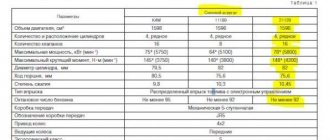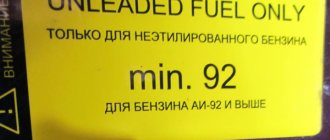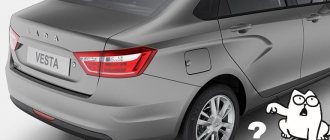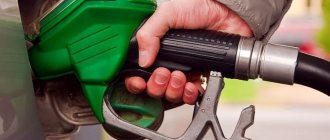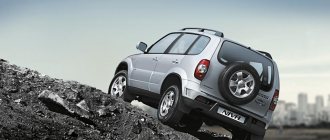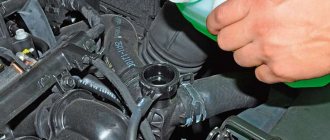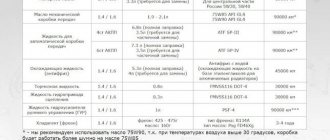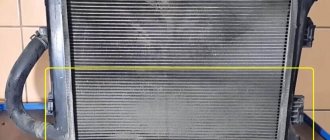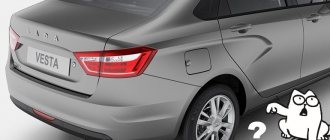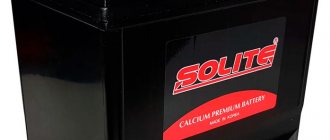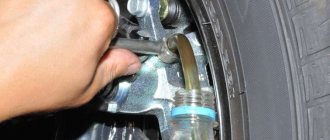To sell a budget car, manufacturers are ready to do almost anything. Including distortion of real data on fuel consumption, brand of gasoline, and actual service mileage. Naturally, the cheaper the car is to operate, the longer the queue will line up for it. Take, for example, the issue of fuel prices. After all, there is a difference which gasoline is better to fill in the Hyundai Solaris - the cheapest 92nd, or 98th extra. In general, it does not affect the speed. What then does it affect? Let's figure it out right now.
Which gasoline is better to fill in a Hyundai Solaris: 92 or 95, survey
To sell a budget car, manufacturers are ready to do almost anything. Including distortion of real data on fuel consumption, brand of gasoline, and actual service mileage. Naturally, the cheaper the car is to operate, the longer the queue will line up for it. Take, for example, the issue of fuel prices. After all, there is a difference which gasoline is better to fill in the Hyundai Solaris - the cheapest 92nd, or 98th extra. In general, it does not affect the speed. What then does it affect? Let's figure it out right now.
Should you pay attention to the octane number?
The numbers in the labeling of automobile fuel indicate the octane number - the percentage of a substance such as isooctane contained in it. The higher the number in the marking, the cleaner the fuel liquid itself.
For example, 98 grade gasoline contains only 2% of impurities that form soot during the combustion process. It is harmful because it clogs the working parts of the engine and, thereby, renders it inoperative.
Nevertheless, developers of modern cars take this feature of fuel into account and design cars in such a way that their engines are adapted to one or another type of fuel liquid. This means that if your car is designed for fuel fluid marked 98, then its “heart” has increased sensitivity to combustion products. Consequently, it is not advisable to fill the tank with fuel with a lower octane number, since the car will eventually fail very quickly. This applies to all cars without exception, but if we are talking about the Hyundai Solaris, then you can afford to experiment.
What does the manufacturer say: what kind of gasoline should I fill in the Hyundai Solaris?
That’s great, it means you can save on the price of fuel and safely use 92nd. The issue is resolved. But is it all that simple, and what determines whether the brand of gasoline matches the engine?
Of course, mere mortals do not need to know this, but it is very advisable to extend the life of your engine. Choosing the octane number of fuel is not as simple as it seems, and it’s not all about the price. The quality of gasoline is of great importance, which is completely different at different gas stations.
Large chain gas stations have their own oil refineries and are interested in ensuring that their fuel is of high quality. Small single gas stations around the corner can afford to add and underfill, although each of them will definitely have a certificate of quality. But even if we accept the quality of gasoline as an axiom, several exclusively technical points still emerge. Here are just a few of them.
Which gasoline is better for Solaris: 92, 95 or 98?
Each brand of gasoline differs from each other not only in price, but also in the number of additives and octane number.
And the octane number affects the engine’s resistance to detonation, that is, the higher the octane number, the more it can be compressed and it will not explode like diesel fuel, but will light up only at a strictly defined moment, when the electronics supply a spark to the spark plug.
- Hyundai Solaris, when using 92-octane gasoline recommended by the factory, spends 10-11 liters per 100 km.
- If you refuel with 95, fuel consumption will decrease by about one liter. Proven by practice.
Ecological fuel class
Depending on the content of impurities harmful to the environment and humans, ecological classes of gasoline are distinguished. The most common classification is EURO, adopted in the European Union in the 1990s. It sets standards for the content of sulfur, hydrocarbons, nitrogen oxides, carbon monoxide and other harmful substances in fuel combustion products. Requirements are constantly becoming more stringent, as a result of which the content of such substances is decreasing.
| Sulfur content in gasoline combustion products according to EURO specifications | ||||
| Environmental class | EURO 2 | EURO 3 | EURO 4 | EURO 5 |
| ml/kg | 500 | 150 | 50 | 10 |
The EURO 6 standard is currently considered the highest. It has been in force in the European Union since September 1, 2015. In Russia, the EURO-5 standard is widespread; only one Russian company attempted to start producing EURO-6 gasoline in 2016.
Most Hyundai Solaris cars in Russia are equipped with engines that meet EURO-4 standards. New cars must be equipped with EURO-5 engines. The environmental class of Solaris can be found by looking at the instruction manual or checking with the dealer.
In principle, gasoline’s compliance with certain environmental standards does not significantly affect the operational, dynamic characteristics and life of the car. Here, concern for the environment and fuel quality come to the fore. And it is traditionally low in Russia. In this case, owners of the popular Hyundai sedan or hatchback, like others, need to remember that they should refuel at branded gas stations, avoiding dubious stations that exist in a single copy or copy the logos and names of well-known fuel companies.
What does the engine compression ratio say?
The dependence of the octane number of gasoline on the compression ratio is known to everyone - the higher the compression ratio, the higher the octane number should be.
If you pour low-octane gasoline into a forced engine, it will simply detonate and explode uncontrollably, only from pressure, and not from a spark.
In Hyundai Solaris with 1.4 and 1.6 liter Gamma engines, the compression ratio is 10.5 units. This is a fairly large value, so the use of 92-octane gasoline may lead to the formation of soot and detonation.
Hyundai is an omnivorous “horse”
The manual for Hyundai Solaris cars with an engine capacity of 1.4 and 1.6 liters states that the car should be refueled with gasoline with an octane rating of at least 92. That is, motorists are encouraged to start with a budget option, which, as practice shows, actually turns out to be most expensive.
If you follow the instructions, it turns out that, for example, the Hyundai Solaris 1.6 can be successfully filled with both grade 92 and grade 95 fuel fluid. Moreover, fuel with an octane number of 98 is also suitable. Theoretically this is true, but in practice that’s all not as wonderful as it seems at first glance.
The following aspects need to be taken into account:
- Solaris will not show violent joy, expressing it through an increase in power and traction immediately after refueling with 95 gasoline. The fact is that the electronic control unit must adapt to the new conditions of combustion of the mixture in the combustion chamber. This will take some time. This is why many people don’t see the difference between 92 and 95, but the engine does.
- If 95 gasoline is diluted with diesel fuel or other rubbish, then fuel consumption can increase significantly, the same applies to 92 gasoline. Naturally, there will be a drop in power and a deterioration in acceleration dynamics.
- There is an opinion that no matter what kind of gasoline is poured into the Hyundai Solaris, they are all produced from the 92nd: either the 95th or the 98th. Of course, all gasoline is made from ugly black oil, but the octane rating is achieved solely by additives. And it’s the octane number that interests us.
- They also say that when using high-octane gasoline, burnout of the valves or piston crown is possible. Yes, it is possible, but only on very ancient engines with a carburetor. Hyundai Solaris did not receive the most modern engines, but they also have control electronics that can adjust the ignition timing and avoid burnout. True, this is subject to the installation of optimal thermal clearances of the valves.
Recommendations
Comments 25
I fill up with regular 92 on BP. I experimented with 95m and didn’t notice any effect. 1.6 automatic transmission.
I fill up at Lukoil and use 92. I tried 95 a couple of times, there is not much difference, the savings, if there are any, are small, but the price is much higher. The dynamics of the car have not changed, even it seemed to me that the 92 was faster.
Agree. 95 Placebo effect.
Lew 95 BP and Gazpromneft update: Automatic 1.4
Accepted, unfortunately we don’t have BP, but Gazprom, something is somehow scary, we have experience of refueling them in the Krasnoyarsk Territory, only there was a different car there, but the impressions were not very good ((
Have you heard anything bad about BP?
It seems not, but we don’t have BP gas stations in our city((
Yes, I understand, I was just wondering)
Automatic, 1.6. Lil 92nd, the catalyst died at 70200)))) Then I poured 95th for the sake of experiment. Consumption has decreased a little, but I decided that it’s not worth it and continue to pour 92nd. Oil main.
I understand you) Thank you) How did you understand that the cat was dead? The dynamics disappeared and the check light was on?
No))) The car farted and looked like a Nexia taxi without a silencer. Well, there was no acceleration and a strange sound. I have everything about the kata in my blog))) www.drive2.ru/l/8837186/
Lew 95 ect Lukoil, the second one goes worse. 98 is even better than 5, but expensive)
With 98 it is better not to overdo it - the pistons and valves will burn out ahead of time, our engine is clearly not a million-dollar engine, and is not designed for ultra-high temperatures. =)
Why should something burn out at 98?
If you use gasoline with a higher octane number (higher than what is provided for in the engine design, and we have stated 92 and 95), then the gasoline will burn “more diligently,” giving off more heat. Consequently, engine parts will overheat, especially the valve group. In addition, oil consumption will increase (there will be waste), and the entire engine may even overheat. In this case, the engine will work for wear. But the most important thing is that a normally adjusted simple engine will have no benefit from constantly burning gasoline with a high octane number, rather harm. And if, when you fill up with gasoline with a higher octane number, you feel that it pulls better, then you should adjust the engine, and it will pull even better on regular gasoline, and detonation will disappear in almost all modes. Let me summarize. It makes sense to fill in 98 fuel only for the purpose of one-time prevention of soot. Constantly driving on 98 fuel is not only wasteful, but also fraught with negative consequences for an unboosted simple (non-sports) engine.
From the instruction manual:
FUEL REQUIREMENTS Gasoline vehicles Unleaded petrol In Europe For optimum vehicle performance, it is recommended to use unleaded petrol with RON 95/AKI 91 or higher. Unleaded gasoline with a recommended RON of 91 to 94/AKI of 87 to 90 can be used, but this may result in a slight reduction in vehicle performance.
Lew 95 ect Lukoil, the second one goes worse. 98 is even better than 5, but expensive)
I only pour 92 from Lukoil, at the gas station where we have their storage facilities) It seems normal, but somehow it doesn’t really work, so I’m thinking of trying to fill it with 95.
Hello. If you don’t want to have problems with the catalyst in three years, lei 95. For the price, that’s what it turns out to be, in the dynamics of a car with 1.6 it will noticeably increase, the consumption will be lower.
Mechanical 1.4 always poured 92, consumption in the city was 10.5, I decided to try filling it with 95. The consumption was 10.3, the dynamics did not increase. Result: I will pour 92
